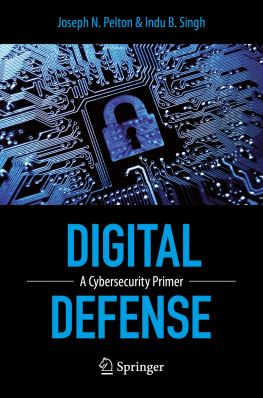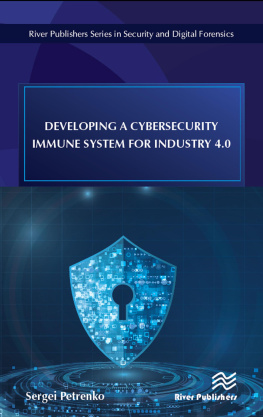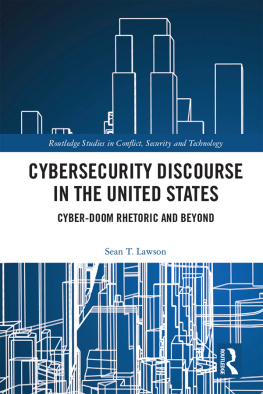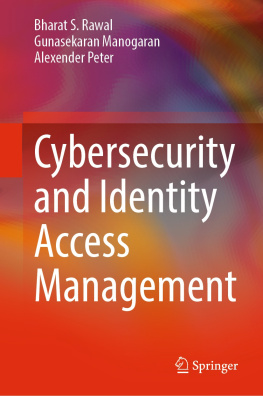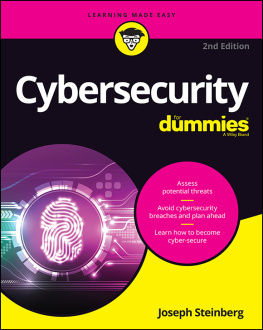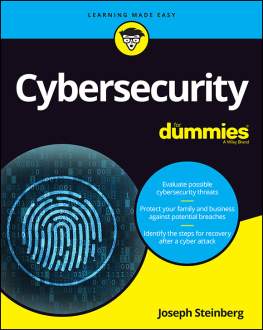1. What Is at Stake? What Should You Do? Why Should You Care?
If you and your family are accosted by a mugger on the street, then your money or your lives could well be at stake. If you live in Ukraine and Russian-backed invaders take over your town, then your livelihood or your home are likely to be in immediate danger. When a foreign power invades your country, you clearly know that you are most definitely in peril and that you had better fight back to defend your rights and that of your community.
Cyber-crime, however, can be so subtle and hidden, people can ignore the threat until it is too late. Yet today about every 3 s a person is hit by some form of cyber-attack out of the blue. It is estimated that a cyber-attack on the electric grid on which we all depend comes about once a minute. Precautions need to be taken up front to combat cyber-fraud, cyber-attack and most definitely cyber-terrorism. Locking the cyber-barn door after a black hat hacker has struck is way too late.
And sometimes the threat to you and your family might not be so subtle after all. Here are some frightening case studies in cyber-stalking, cyber-crime, and worse.
Houston, Texas, and the Hacked Baby Cam in the Nursery
Dateline January 28, 2015: A nanny named Ashley Standly was looking after 1-year-old Samantha in Houston, Texas, when she had a terrifying moment. It started when she heard a noise near the baby and walked over to investigate. Ashley could not believe her ears. A strange mans voice came though on the babys monitor. This particular baby cam had a microphone and a high resolution camera linked to the households Wi-Fi Internet system. A strange man from nowhere could be heard calling the little girl cute. The Wi-Fi wireless network had been used by a cyber-lurker to invade the privacy of this Houston household. What had been installed as a safety feature, but without security password protection, had become a portal for a digital voyeur to intrude into the nursery. This feat could unfortunately be achieved via a widely-available smartphone or wireless network app [).
Fig. 1.1
Security cameras that are connected to a home Wi-Fi Internet systems can be hacked
The Sum of 22,000 lb Transferred from Elderly Mothers Bank Account in London, England
Dateline February 28, 2015: A 31-year-old Nigerian hacker living in Southsea, England, used special software to access the e-mail account of Ilaria Purini, who lives in London. This is how he learned her passwords and the personal details of her life and her close relationship with her mother, who lives in Italy. In this case it turned out that Ilaria Purini worked for a museum and purchased art for her mother and sent it to her in Italy. Posing as Ilaria Purini in an e-mail the hacker sent instructions to a banker in Italy, who manages the bank account for Rosanna Rose, who is Ilarias mother. He daringly ordered the transfer of money for the purchase of a work of art using earlier such orders as the model for the bank instruction. The first transaction was for 7784.59 lb, and when this transfer was successfully made to the account of the Nigerian hackerrather than to Ilaria Purinihe doubled down and struck again. The second time he ordered the transfer of 14,215 lb. Eventually they were able to track him down, and the 22,000 lb were eventually regained. In this case it was not only getting the passwords and bank account numbers and bank managers e-mail address, but the knowledge that art purchases were being made with orders to the bank manager for currency transfers [].
Couple Sentenced for False Tax Refund Conspiracy
Dateline April 24, 2014: In Charlotte, North Carolina, Senita Birt Dill and Ronald Jeremy Knowles were sentenced to multi-year prison terms and also ordered to pay $3,978,211 in restitution to the IRS. Dill and Knowles pleaded guilty to Internet access fraud and conspiracy charges. Dill also pled guilty to aggravated identity theft. Dill and Knowles used fraudulently obtained personal identification information (including names, dates of birth, Social Security numbers, and other personal information obtained via electronic and other means) to file false tax returns and claim falsified tax refunds. Dill and Knowles used neighbors addresses to fill out the fraudulent tax returns and checked the homes mailboxes frequently to retrieve the fraudulent refund checks upon delivery. The defendants also used addresses in Greenville and Greer, S.C., which belonged to Knowles businesses. Dill and Knowles managed to file over 1000 false tax returns using the fraudulently obtained personal identification information before they were caught. These actions exposed over a 1000 people to potential charges of defrauding the U. S. government [].
Teens and Cyber Identity Theft
In some cases it turns out that teens are a perfect target for identity theft. Teens have a Social Security number and usually will have a perfect credit record, since they do not have debt; if there is a credit card it is often paid by their parents. It is only when teens go off to college or apply for their first credit card that they may find out that their identity has been stolen and used for some cyber-crime or fraudulent return [].
Kaitlin Jacksons Campaign Against Cyberbullying Trolls
Kaitlin Jackson of West Wales joined a support group on Facebook called Angel Mums after suffering the trauma of a miscarriage. But soon after joining, the group was overrun with tormenters called cybernet trolls who bombarded the women with horrifying messages of abuse, posting pictures of aborted fetuses and making jokes about dead children. Even worse she checked the Facebook and Twitter accounts used by her children and was appalled to find several examples of them also being targeted by these cyberbullies as well. The comments sent to my were horrendous.
Kaitlin Jackson decided to fight back. Today she spends up to 8 h a day rooting out the identities of those responsible for placing contemptible messages on tribute pages and websites used by charity groups. If she finds out a trolls name, a Facebook profile page, or a website address she e-mails the details straight to the people responsible for policing the sites where the abuse appears. She also e-mails the trolls directly, warning them she is handing their messages over to police. Kaitlin Jackson is now a leading member of Stop Cyberbullying and Trolls. Kaitlins tactics involve bombarding the bullies with messages and asking them to explain their actions. Among the first trolls she tackled were those who created Facebook pages celebrating the murder of 5-year-old April Jones at Machynlleth, Wales, in October 2012. She now reports 40 people or sites to the police hate crime unit a day. The problem with criminal prosecution in many cases, however, is that messages posted on foreign sights are not currently subject to charges, especially if it cannot be proven that the cyberbullying attack was made by someone of local origin because of their totally anonymous postings. An international convention on cyberbullying would assist to combat trolls and their abusive behavior around the world.

